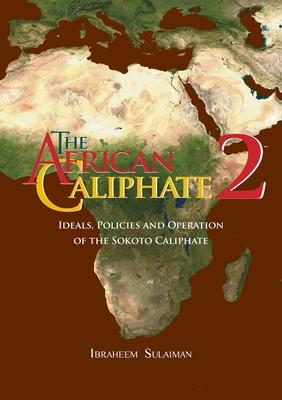Continuing the story of the Sokoto caliphate after the death of Shehu Usman, The African Caliphate 2 charts the political and intellectual development of a strong Islamic government covering:
* Theory of Government
* Leaders, laws snd key political institutions
* Justice, social morality, public welfare and defence
* Principles of statecraft
* Place of war in the creation and consolidation of a state
* The people, their religious commitment and family obligations
* Role of women in the Islamic community
The Sokoto Caliphate of West Africa exemplifies such a state during its development. Emerging from a city-state in the early nineteenth century. By the time the British took over in 1903 it encompassed an area nearly twice the size of the present-day United Kingdom. The author examines the work and lives of Muhammed Bello, the architect of the Caliphate, and other leaders. He judges West Africa's encounters with the West - with Mungo Park, Major Dixon Denham, Commander Hugh Clapperton and Dr. Walter Oudney - and decries the plunder of Africa's human and natural resources.
With the establishment of Nigeria in 1914 and the British withdrawal in 1960, the author looks toward the regeneration of the Islamic state in West Africa.
This book is for historians of Africa snd Islam and for those studying the development of government in all its contexts - political, social, intellectual and moral. For African and Black Studies programmes, The Islamic Caliphate 2 is essential.
14.8 x 21 cm. 230 pages
Malam Ibraheem Sulaiman
The author is a research fellow with the Centre for Islamic Legal Studies, Ahmadu Bello University, Zaria, Nigeria
